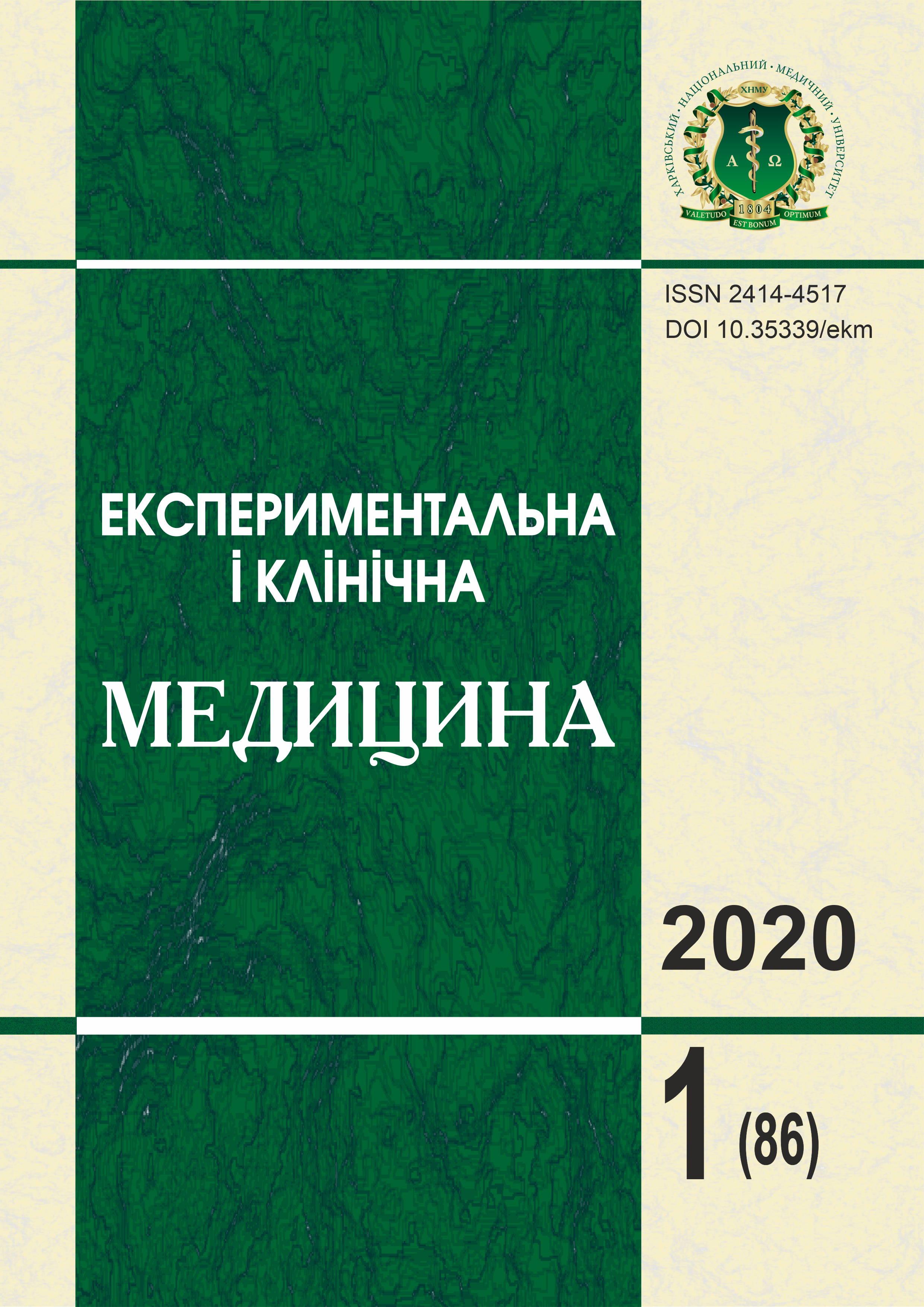Abstract
The aim of the study was to investigate the relationship between the severity of family anxiety as an indicator of family functioning and the level of psychosocial stress (PS) in long-distance sailors, to determine further targets of personalized mental health measures for this contingent. Contingent and research methods. During 2016-2019, 110 officers of the command staff of the Maritime Merchant Navy, 90 sailors of the Maritime Merchant Fleet, 70 representatives of the command unit of the Maritime Passenger Fleet and 30 privates of the Maritime Passenger Fleet were surveyed. All were examined by men, citizens of Ukraine. The study included the use of clinical-psychopathological and psychodiagnostic methods. The study revealed differences in the manifestations of family guilt, family tension and family anxiety in the command staff and sailors of the merchant and passenger fleets. The greatest influence on the intensity of family anxiety was exerted by the level of PS: at low levels of stress the indicators of family anxiety (including its individual components) were the lowest, and at severe stress the indicators of family anxiety were the highest. The basis of «family anxiety», as a rule, was the poorly perceived insecurity of the sailor in some very important aspect of family life (for example, insecurity in the feelings of his wife to himself, or insecurity). Often such worries, contrary to self-image, were supplanted, which led to anxiety in family relationships. An important component of «family anxiety» was the feeling of helplessness and inability to interfere in the course of events in the family, in order to direct them in the desired direction. Sailors with «family anxiety» did not feel like a significant actor in the family (despite the real warming of an important position and active role in the family). The influence of social group (command staff or sailors) and the type of fleet (commercial or passenger) on the level of family anxiety, family guilt and family tensions was secondary.
Keywords: long-distance sailors, psychosocial stress, family anxiety, family functioning.
References
Carotenuto, A., Fasanaro, А. М., Molino, I., Sibilio, F., Satumino, A., Traini, Е., Amenta, F. (2013). The Psychological General Well-Being Index (PGWBI) for assessing stress of seafarers on board merchant ships. International maritime health, 64(4), 215-220. DOI: 10.5603/imh.2013.0007. PMID: 24408143.
Tavacioglu, L., Tac, U., Eski, O., Gokmen, N. (2019). Burnout and job satisfaction among Turkish oceangoing seafarers. International maritime health, 70(4), 232-238. DOI: 10.5603/IMH. 2019.0037. PMID: 31891177.
Jepsen, J. R., Zhao, Z., van Leeuwen, W. M. A. (2015). Seafarer fatigue: a review of risk factors, consequences for seafarers’ health and safety and options for mitigation. International Maritime Health, 66(2), 106-117. DOI: 10.5603ЛМН.2015.0024. PMID: 26119681.
Jezewska, M., Leszczynska, I., Jaremin, B. (2006). Work-related stress at sea self estimation by maritime students and officers. International maritime health, 57(1-4), 66-75. PMID: 17312695.
Borovnik, M. (2011). Occupational health and safety of merchant seafarers from Kiribati and Tuvalu. Asia Pacific viewpoint, 52(3), 333-346, DOI: 10.1111/j.1467-8373.2011.01459.x. PMID: 22216477.
Oldenburg, M., Jensen, H. J., Wegner, R. (2013). Burnout syndrome in seafarers in the merchant marine service. International archives o f occupational and environmental health, 86(4), 407-416, DOI: 10.1007/s00420-012-0771-7. PMID: 22526089.
Carotenuto, A., Molino, I., Fasanaro, A. M., Amenta, F. (2012). Psychological stress in seafarers: a review. International Maritime Health, 63(4), 188-194. PMID: 24595974.
McVeigh, J., MacLachlan, M., Vallieres, F., Hyland, P., Stilz, R., Cox, H., Fraser, A. (2019). Identifying Predictors of Stress and Job Satisfaction in a Sample of Merchant Seafarers Using Structural Equation Modeling. Front Psychol, 10(70). DOI: 10.3389/fpsyg.2019.00070. PMID: 30787888. PMCID: PMC6373618.
Sliskovic, A., Juranko, A. (2019). General mental health of seafarers’ partners: Testing the role of personal resources and human-resource practices. Work (Reading, Mass.), 64(2), 291-301. DOI: 10.3233/WOR-192992. PMID: 31524195.
An, J., Liu, Y., Sun, Y., Liu, C. (2020). Impact of Work-Family Conflict, Job Stress and Job Satisfaction on Seafarer Performance. International journal o f environmental research and public health, 17(7), 2191. DOI: 10.3390/ijerphl7072191. PMID: 32218272. PMCID: PMC7177528.
Thomas, М., Sampson, H., Zhao, M. (2003). Finding a balance: companies, seafarers and family life. Maritime Policy & Management, 30(1), 59-76. DOI: 10.1080/0308883032000051630.
Ulven, A. J., Omdal, K. A., Herlov-Nielsen, H., Irgens, A., Dahl, E. (2007). Seafarers’ wives and intermittent husbands-social and psychological impact of a subgroup of Norwegian seafarers’ work schedule on their families. International maritime health, 58(1-4), 115-128. PMID: 18350981.
Kim, Jae-Ho. (2013). A Study on the Improvement Method for Health Management of Seafares. Journal of Navigation and Port Research, 37(1), 29-34. DOI: 10.5394/KINPR.2013.37.1.29 [in Chinese].
Haka, М., Borch, D. F., Jensen, C., Leppin, A. (2011). Should I stay or should I go? Motivational profiles of Danish seafaring officers and non-officers. International maritime health, 62(1), 20-30. PMID: 21534222.
Sosin, I. K., Haponov, K. D., Honcharova, O. Iu., Markova, M. V. (2018). Sposib diahnostyky klinichnoi spetsyfiky i prohnozu perebihu alkoholnoi zalezhnosti u osib z riznym psykhotravmatychnym dosvidom i rivnem psykhosotsialnoho stresu [Method for diagnosing clinical specificity and prognosis of alcohol dependence in persons with different psychotraumatic experience and level of psychosocial stress]. Informatsiinyi lyst MOZ Ukrainy № 249-2018. Kyiv: Ukrmedpatentinform, 4 [in Ukrainian].
Eidemyller, E. H. (Eds.). (2002). Systemnaia semeinaia psykhoterapyia [Systemic family psychotherapy]. Moskva-Kharkov-Mynsk: «Pyter». 83-95 [in Russian].
Yariy, V. V. (2016). Psykhosotsialni osoblyvosti i rodynne funktsionuvannia druzhyn cholovikiv, khvorykh na alkoholnu zalezhnist [Psychosocial features and family functioning of wives of men with alcohol dependence]. Medychna psykholohiia-Medical Psychology, 1(41), 44-50 [in Ukrainian].
Olyfyrovych, N. Y., Zynkevych-Kuzemkyna, T. A., Velenta, T. F. (2006). Psykholohyia semeinukh kryzysov [Psychology of family crises]. Moskva: Rech. 260 [in Russian].
Kosenko, K. A. (2019). Riven psykhosotsialnoho stresu ta stan psykhichnoho zdorov’ia u moriakiv dalekoho plavannia [The level of psychosocial stress and mental health in long-distance sailors]. Visnyk Vinnytskoho natsionalnoho medychnoho universytetu-Bulletin of Vinnytsia National Medical University, 23(4), 697-702. DOI: 10.31393/reports-vnmedical-2019-23(4)-24 [in Ukrainian].

